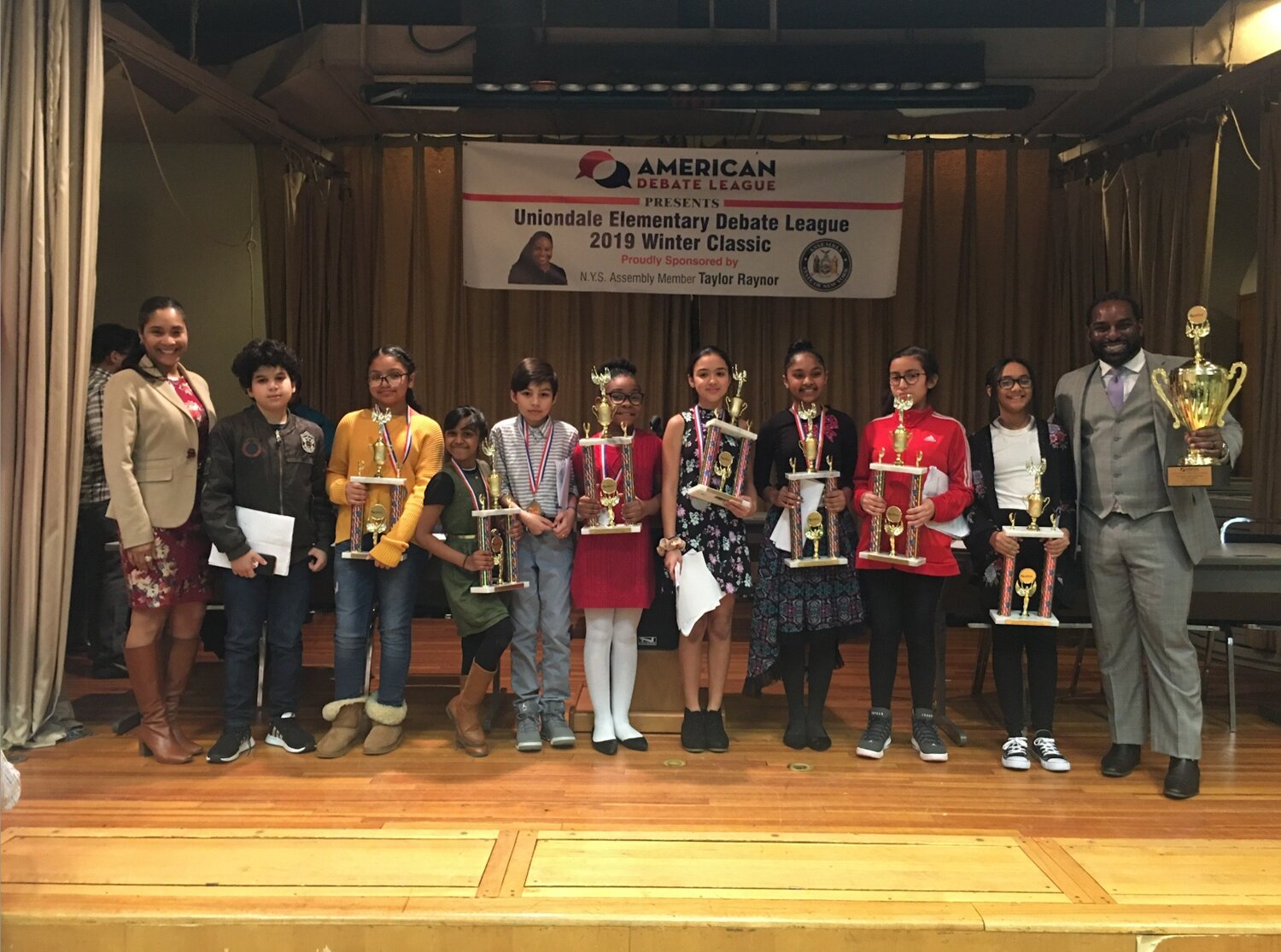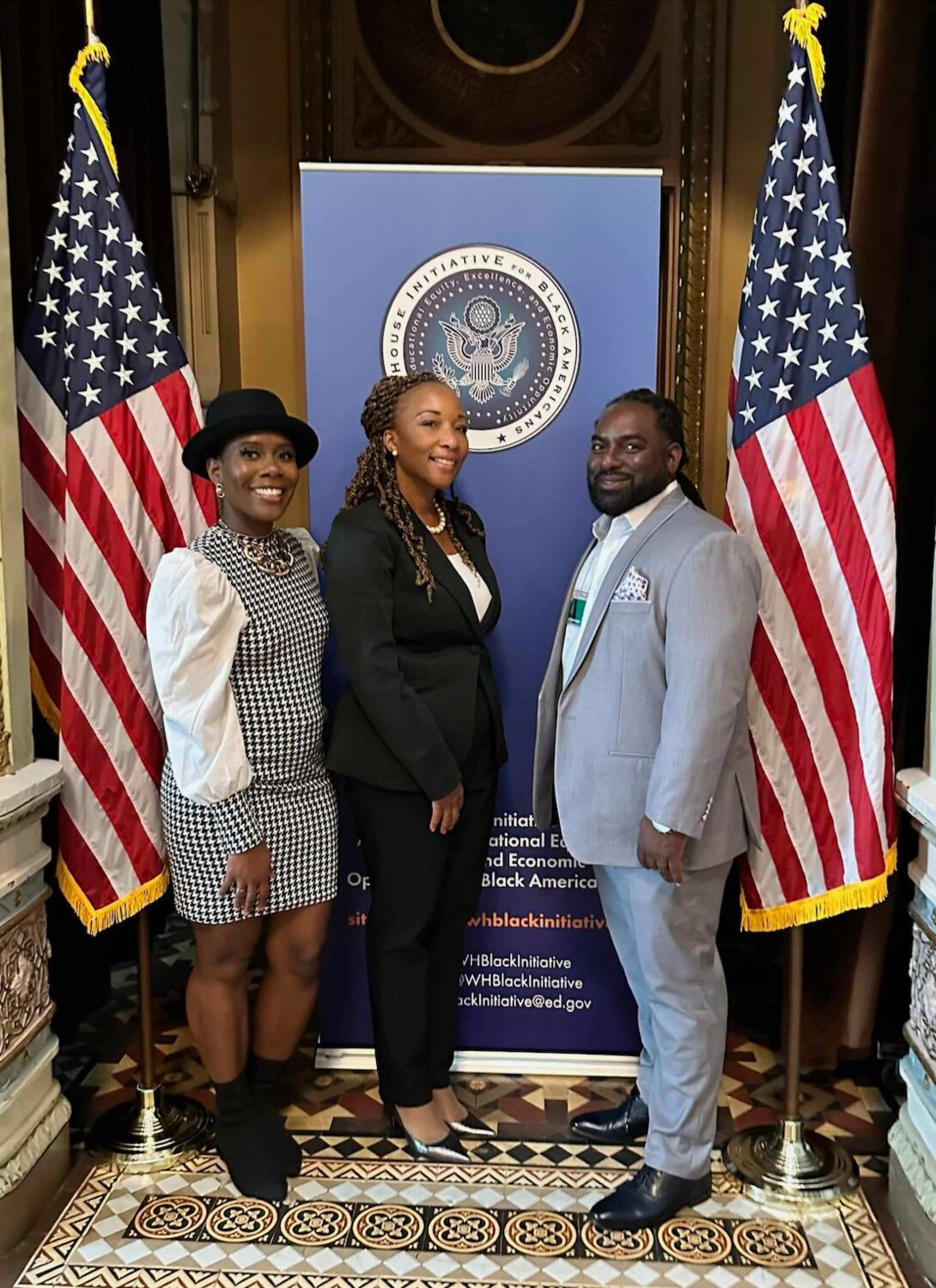Uniondale educators Keturah Lee and Roderick Peele earn national recognition
Two Uniondale Union Free School District teachers had a unique experience in Washington, D.C., on May 2. Black educators Keturah Lee and Roderick Peele, from California Avenue School and Northern Parkway Elementary School, respectively, were spotlighted during an event at the White House, part of its Initiative on Advancing Educational Equity, Excellence, and Economic Opportunity for Black Americans.
The event spotlighted about 60 educators from across the nation.
“It shows our standing in the educational community, but more importantly, it gave us an opportunity to honor some amazing everyday heroes,” Uniondale Superintendent Monique Darrisaw-Akil said. “They are two examples of the type of amazing educators we have all throughout our district.”
Peele, a fifth-grade teacher, works with a mixed class of general-education students and those with individual education plans. But he didn’t intend to become a teacher. It was his second career, after leaving the health and beauty industry. His journey as an educator began in the Wyandanch School District, where he first substituted in a computer technology class.
From there, Peele embarked on a mission to help the district gain good academic standing after being on the state’s low-performance list for a decade. Eight years ago, his work at Wyandanch caught the attention of the principal at Northern Parkway, in Uniondale. Encouraged by his former principal, he joined Uniondale and found immense support, mentorship, and an opportunity to help more students.
“He is a phenomenal educator who builds students’ cultural competency, their self-esteem, and when they leave his class, they are strong thinkers, writers and community leaders,” Darrisaw-Akil said. “He’s a sought-after writer and speaker because of his literacy practices that have become a model classroom throughout our district.”
Peele said he cherished his time in Washington because he felt the support for Black educators. Through his conversations, he learned that there were many commonalities in the challenges they face. He saw the need for more networking opportunities and alliances to gain access to additional resources they can draw from to help shape and enhance their pedagogy.
“One of the challenges that we had in common was the culturally relevant component of education, and how it’s predominantly created and developed in a way with a white lens, or a dominant culture’s lens,” Peele said. “Fortunately, at my school, we’re all working in a culturally relevant capacity, so for me, it isn’t as much of a challenge.”
Peele also discussed the challenge of being a Black male educator, adding that they are often utilized as disciplinarians instead of being thought of as complete educators.
Unlike Peele, Lee knew she wanted to be a teacher, and began working with the district soon after she graduated 15 years ago, while attending Five Towns College. She began her career as a clerical worker, bur after earning her degree in education, she became a substitute teacher, then a 504 coordinator who provided testing accommodations to special-education students. Now Lee teaches a small class of students with autism, the first of its kind in the Uniondale district.
“The work that she does with some of our most challenged young people is phenomenal,” Darrisaw-Akil said. “She’s just an overall well-rounded, phenomenal educator, and when I got the call, she was the first person I thought of to be recognized in this way.”
Lee recognizes the multifaceted needs of students with disabilities, which extend beyond academics to encompass emotional, social and resource-based support. Her biggest joy is in the small moments with her students. One of her fondest memories is of when she dressed as the Cat in the Hat, from the Dr. Seuss book of the same name, and helped them cook green eggs and ham to get them out of their academic routines. She recorded the experience for the students’ parents, to share their kids’ moments of achievement and progress with them.
“It takes a lot of heart to do what I do, because they have such a need that require more than your skills,” Lee said. “It’s not just what you can do for them academically. In the long run, I love this population of students that I’m working with, and I’m invested in everything that it requires, but it takes a lot of heart.”









